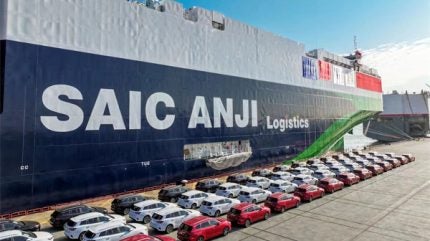
The US government confirmed earlier media reports it was raising import tariffs on Chinese battery electric vehicles (BEVs), semiconductors, solar cells, steel and other sensitive technology to protect its local industries from what it saw as unfair competition from Chinese manufacturers.
US President Joe Biden said in a speech the government was hiking import duties on Chinese made BEVs fourfold, from 25% at present to 100%, to “safeguard American jobs”.

Discover B2B Marketing That Performs
Combine business intelligence and editorial excellence to reach engaged professionals across 36 leading media platforms.
The US is China’s largest trading partner and Biden said the new duties would affect US$18bn worth of Chinese imports. He said the tariffs would be imposed on “carefully targeted strategic sectors”, mostly in “green technology”, to allow US manufacturers more time to catch up with their Chinese counterparts.
While Chinese vehicles account for a very small proportion of US sales, the US BEV segment was seen as a key future global growth market.
Biden said China had employed unfair trade practices, including cyber espionage, and was using its excess capacity to flood overseas markets with cheap imports which were putting local industries out of business, particularly in Europe.
In what was clearly a pre-election speech, he said: “Whether it is gas, electric or hybrid, we’re never going to allow China to unfairly control our car market”.
China was likely to take retaliatory measures at some point, increasing the uncertainty for US businesses operating in Asia’s largest economy.
This developing trade war was being followed closely by the European Commission which was also considering similar measures to help protect its local industries from what it also saw as unfair Chinese government support for its BEV industry and related supply chain.
Most vehicle production in China is carried out by state owned manufacturing groups and their joint ventures.
European automakers including Volkswagen this month voiced their opposition to any tariff hikes on Chinese BEVs sold in Europe fearing this might compromise their significant market position in China, the world’s largest vehicle market.






